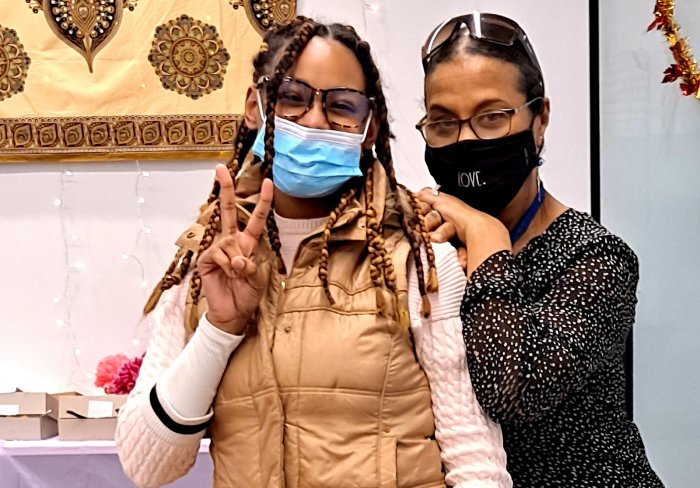Today there are an estimated 2 million New Yorkers diagnosed with diabetes, and another 5.4 million are in danger of developing it.
At Children’s Aid, we work with children and families every step of the way to promote a healthy lifestyle and provide education to help prevent this disease.
Dr. Sophia Gigos-Costeas, our assistant medical director, works with families and children from four months through 21 years old to ensure they understand how the food they put in their bodies affects their health.
“I sit with them and talk to them about exactly what they’re eating,” she said. “I ask them what they drink and I ask them specifically, what brand? How much? And then I pull up the nutrition label on the internet and teach them how to read it.”
Dr. Gigos-Costeas treats many patients who are pre-diabetic. They usually have a poor diet, a high body mass index, and high blood sugar.
Though it’s important to provide patients with medical statistics, Dr. Gigos-Costeas said she is more successful when she works to build a healthy eating plan that caters to every patient’s lifestyle.
“You can’t just tell people you have to eat healthy, you have to lose weight,” she said. “You have to give them tools and really work with their lifestyle and their culture.”
Adults with diabetes are nearly twice as likely to die from stroke or heart disease as those without. Dr. Gigos-Costeas focuses on preventive measures so that patients can lead long, healthy lives.
When speaking to teenagers, she makes sure not to “talk down to them” but to treat them as adults with agency over their actions.
“Teenagers love it when I pull up a nutrition label,” she said. “They want to learn.”
Our work is especially important in the Bronx, which has the highest rates of diagnosed diabetes in the state with 16 percent of the population diagnosed with the disease.
Though each patient requires specific advice, Dr. Gigas-Costeas said there are a few habits everyone should incorporate – having three meals a day, consuming the recommended amount of fruits and vegetables, drinking plenty of water, and choosing whole and unprocessed foods versus those with refined carbohydrates.
“It’s a complicated subject because we’re working against all the marketing forces, which are pushing all these unhealthy foods at people,” she said. “It’s really a force to be reckoned with and just walking around in the stores here, you have to really make an effort to find good quality packaged foods. You’re really competing with a lot of easy-to-use processed and cheap foods.”







